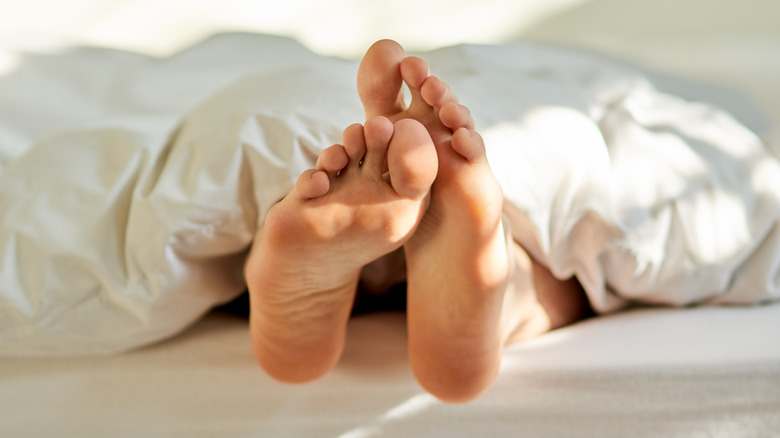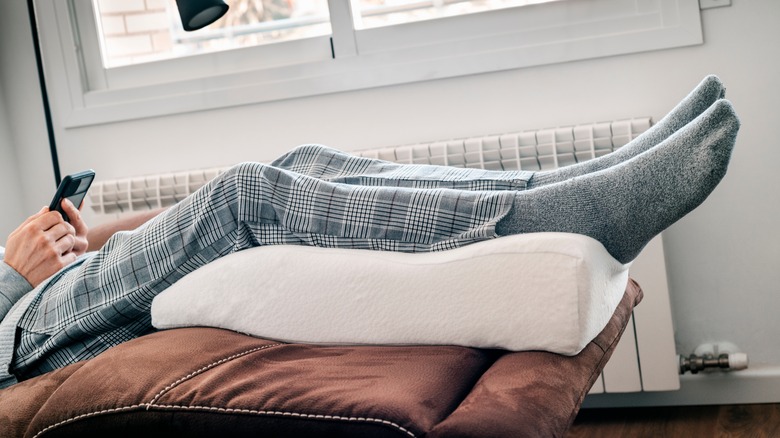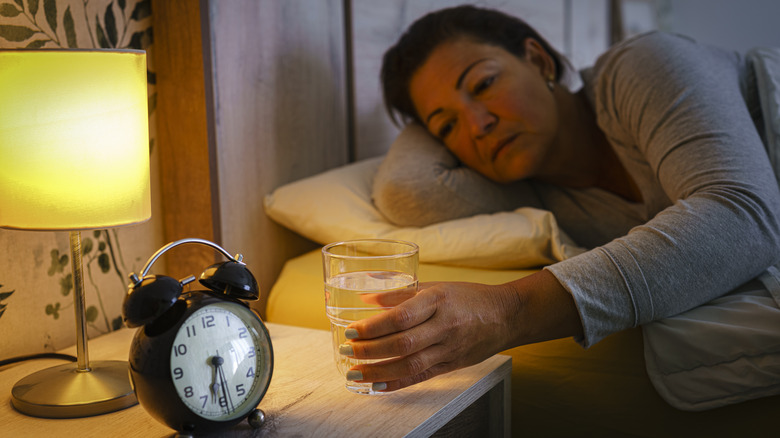Do This With Your Feet To Reduce Those Annoying Middle-Of-The-Night Bathroom Breaks
Sometimes, a pesky middle-of-the-night bathroom trip can be easily explained. Maybe you drank a good bit of water or enjoyed a salty snack shortly before bedtime, both of which can have you running for the toilet. Other times, the cause of a midnight bathroom break isn't so obvious. In these instances, you may be experiencing nocturia, a condition in which a person is affected by frequent nighttime urination, according to updated 2023 research published in StatPearls.
Some people may be more susceptible to nocturia than others. This includes older adults and people with obstructive sleep apnea, as well as those diagnosed with peripheral edema. People with peripheral edema experience swelling in the legs due to a buildup of fluid in the leg tissue. This can lead to pain, weakness, heaviness, and limited mobility. Between 2000 and 2016, a reported 19% to 20% of older Americans were living with the condition, according to 2021 research published in PLOS ONE. A simple repositioning of the feet during the day, however, may help these patients reduce nighttime bathroom breaks.
Lay down and prop your legs up during the day
So what's the link between peripheral edema and ongoing nighttime pee breaks? Experts at Gulf Coast Urology explain that at night, all that fluid pooling in the legs drains away as we lay down. This increases urine production while we snooze, which can lead to wake-ups in the middle of the night.
To minimize sleep disturbances, try elevating your legs during waking hours so this drainage occurs earlier in the day rather than overnight. To do so, the National Association for Continence suggests laying down for 60 minutes with a pillow tucked underneath your legs so that your heels are elevated above chest level. Consider taking a cat nap while you wait. Just don't do this too close to bedtime, though. You want to leave a window of two or more hours between this practice and heading to sleep. Without giving our body enough time to absorb this fluid into the bloodstream and process it into urine, you'll likely still feel the urge to go number one overnight.
Other ways to reduce middle-of-the-night bathroom breaks
First and foremost, consider minimizing the amount of liquid you consume before bed. While you want to be sure you're getting plenty of water throughout the day, try reducing your fluid intake about two to four hours before sleep, advises Gulf Coast Urology. Coffee and alcohol, in particular, are best avoided during the second half of the day. Nocturia can also be related to medication use. Beta-blockers, lithium, anticholinergics, cholinesterase inhibitors, and diuretics are all drugs that can cause urinary symptoms. When it comes to diuretics, talk with your doctor about taking the medication approximately 6 hours before calling it a night.
Finally, if your nighttime urination can be traced to an underlying health issue, speak to your doctor about treatment options. Such health issues may include an enlarged prostate, an overactive bladder, a urinary tract infection (UTI), or chronic kidney disease. With these tips, both you and your bladder may sleep more soundly through the night.



